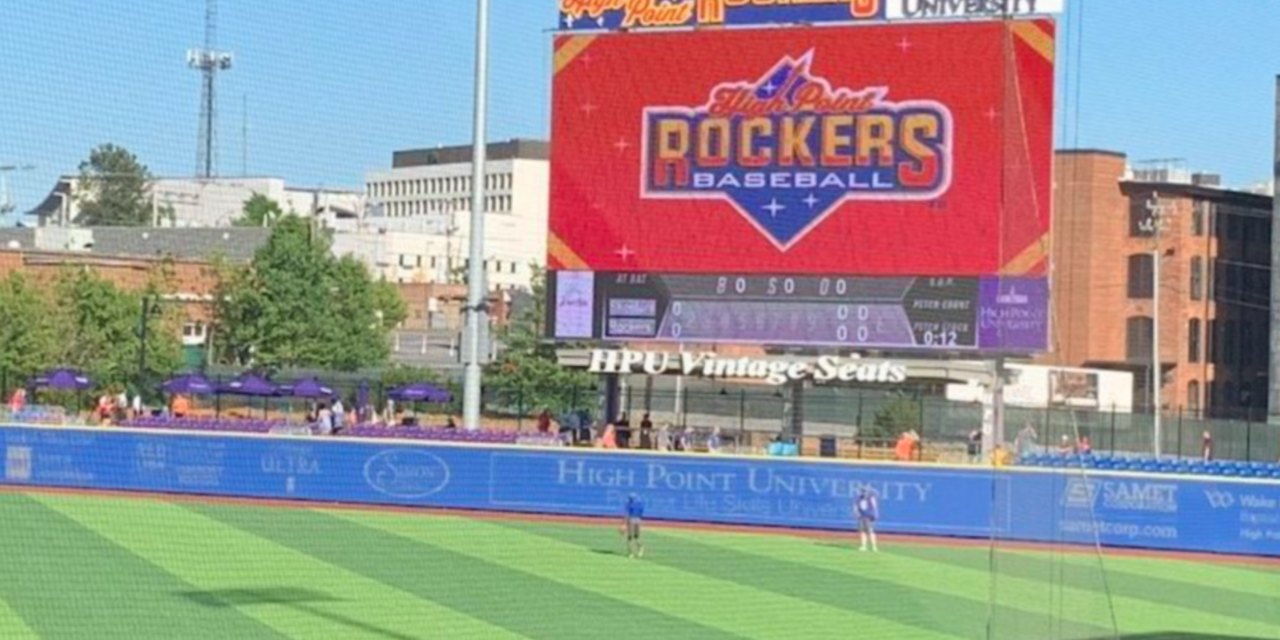The Guilford County Board of Commissioners is set to vote on Monday, Feb. 22 to give High Point $7 million to help the city conduct its downtown revitalization efforts, but some county commissioners still have a lot of questions about the deal.
One big question, for instance, is how much it will cost the county when the other municipalities in Guilford County all come asking for a similar gift.
Nearly four years ago, High Point leaders requested that Guilford County provide the city with about $11 million in help to build a new downtown ballpark and to renovate the downtown area around the stadium. The Republican-majority Board of Commissioners didn’t grant that request, citing inaccurate financial numbers and an inadequate vetting of the proposed plan by High Point officials. However, when the November 2020 election brought the county a Democratic-run board with Democratic Commissioner Skip Alston as chairman, a new $7 million economic incentive for High Point dropped out of the clear blue sky.
At the Board of Commissioners’ Thursday, Feb 18 meeting, several commissioners stated that they hadn’t seen enough details on the proposal, while others said that they’d seen enough to know they would be voting against it.
Commissioner Justin Conrad had some tough questions for new Guilford County Manager Mike Halford. In the past, when the county has given out incentives, they have included “clawback” provisions which mean the money is not paid out if the conditions aren’t met – for instance, if a business doesn’t create as many jobs as it promised.
“You have mentioned that they have projects, but what’s our clawback?” Conrad asked Halford.
Halford, after a pause, said the board could work those out on Feb. 22 when it meets for a final vote on the incentives.
“I think it’s whatever the board would be comfortable with at that point,” Halford told Conrad.
“So, the answer right now is ‘None’ –and we’re expected to take this vote in two days?” Conrad shot back.
Usually, clawback provisions for an incentives agreement are worked out long before this point in the process.
Conrad said the board needed to hold a work session to discover and discuss the details of the proposal. The board did hold a short work session on the matter earlier in February. At that work session, some commissioners had asked for more discussion in an expanded work session but that proposal was voted down.
“I have some serious questions,” Conrad said.
Alston said that Halford could answer questions over the weekend.
Perdue said he had asked Halford to bring in some numbers as to how much it would cost the county if other municipalities want the same deal.
“When Greensboro, Sedalia, Summerfield, Stokesdale, Pleasant Garden, Jamestown and others that are out there come and say, ‘We want our share too.’ What is that number?”
Halford said it would depend on the nature and scope of projects requested.
“I’d like to see some actual numbers,” Perdue pressed.
“Aren’t you dealing with a hypothetical? Alston responded. “Has somebody made an ask?
“We need to go in with our eyes wide open,” Perdue said. “We need to know what the actual costs are. If others come in and ask for something similar, what would it cost? When you open up Pandora’s box, you need to know what’s in Pandora’s box. That’s important to me, and I think it’s important to some of our other commissioners.”
In response, Alston said, “You won’t know what’s in Pandora’s box until you open Pandora’s box.”
Conrad said after the meeting that Alston’s comment reminded him a great deal of US House Speaker Nancy Pelosi’s now-famous statement on Obamacare: “We have to pass the bill so that you can find out what’s in it.”


Scott,
If you recall, the original proposal was to share in the increase in property taxes created by the development around the stadium. Seems clear to me that some never did read the original ask by High Point.
It appears this incentive is going to be shoved through the Commissioners much like the ballpark and the surrounding development was shoved through without High Point taxpayer approval. Some of the commissioners are wise to want confirmation of important details.
For High Point to expect anything from the Guilford County Commissioners is wishful thinking. We have always been a stepchild in this county and it will always be that way. The problem is that High Point has insufficient representation on the board and this will continue. It is sad that Greensboro and Guilford county certainly benefit from our hosting the Furniture Shows each year, but when it comes to trying to establish a new city core, the powers that be get tunnel vision. It is fine to anticipate that other communities in the county may ask for money. After all, we all pay Guilford County taxes. Each “ask” has to be evaluated individually. But, I guess it is too easy just to put your head in the sand and say NO!
The Grasshoppers got no money from Guilford County. Why should the Rockers be any different?
Ugh. And this is just the beginning
‘Tis easier to spend other people’s money!!!
I’m not certain what “dog Skip has in this fight “ but he’s being awfully defensive in his responses to valid questions.
Ramming another $11 million in liabilities down the taxpayers throats will not generate any votes in the next election.
Once this debacle plays out there will still be enough of us here to remind you, “this is what you voted for”.